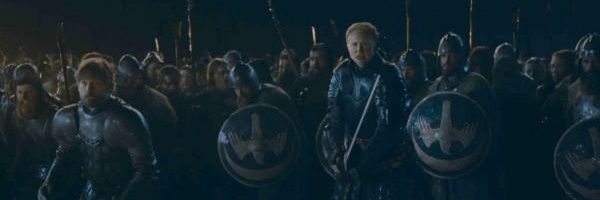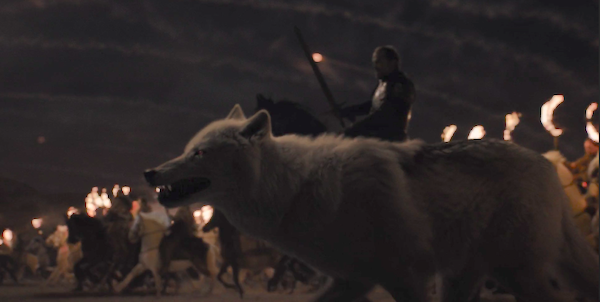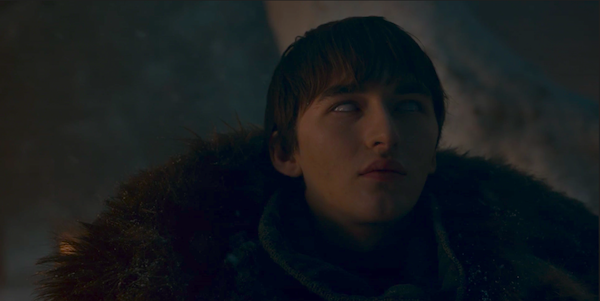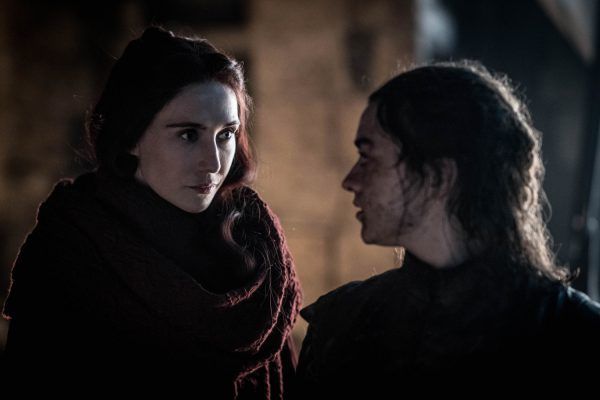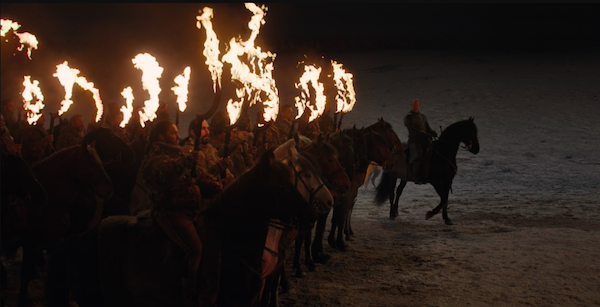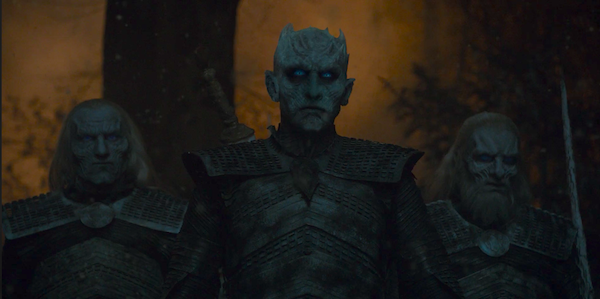Game of Thrones is dark. Like ... super dark. It always has been. But normally when fans of the HBO hit are commenting on how dark it is, the conversation is about tone, or storytelling twists, or gut-wrenching, unfair character deaths. Rarely does the term "dark" apply to the series' visual palette in casual conversation, and rarer still does anyone comment that an episode was actually too dark to see anything. But that latter criticism is exactly what happened with the series' record-breaking episode, "The Long Night", and cinematographer Fabian Wagner is here to respond.
Wagner, the cinematographer for the series' longest episode ever along with fan-favorite installments like "Hardhome" and "Battle of the Bastards", has been with the show since Season 4, and in the industry overall for the last 15 years. "The Long Night", which took 11 weeks and 55 night shoots to complete, pushed even veteran cast and crew to their limits. It was always intended to be dark, visually, but not so dark as to render people's viewing experience null and void. So what happened?
Well, for starters, "The Long Night" was, as its title suggests, a very lengthy nighttime battle, occasionally lit by flaming trenches filled with pitch and sharpened logs, or by dragon fire from not one but three battling dragons. Sometimes the Lord of Light deigned to brighten up the proceedings through the Red Priestess Melisandre, who channeled godly power to set Dothraki Arakhs aflame before they were unceremoniously snuffed out by the approaching dark. Undead wights and giants lumbered out of the swirling mists, even before the Night King called down a blizzard that reduced visibility to near zero. And as each of our heroes battled back against the oppressive tide of darkness that crashed down upon them, each of their little lights went out, making proceedings all the darker... That's great visual storytelling.
But a lot of people literally couldn't see it.
Wagner had this to say in response to that particular criticism:
"[GoT] has always been very dark and a very cinematic show ... We tried to give the viewers and fans a cool episode to watch. I know it wasn't too dark because I shot it." [TMZ]
He got a little more specific when chatting with Wired:
“The showrunners decided that this had to be a dark episode. We’d seen so many battle scenes over the years – to make it truly impactful and to care for the characters, you have to find a unique way of portraying the story ... Another look would have been wrong. Everything we wanted people to see is there ... Personally I don’t have to always see what’s going on because it’s more about the emotional impact.”
There's a fine line between giving viewers enough of a hint of what's going on in order to establish a mood--chaotic battle sequences, fast-moving camerawork, shadowy figures moving into and out of the available flickering fire light--and forcing them to squint or get out their reading glass just to see what's happening. But no matter how good the cinematography is on set or on location, it can all fall apart by the time it gets to a viewer's screen of choice.
Wagner told TMZ that's HBO's own compression tech might be partially to blame for poorer visual quality, and the same goes for a poor quality internet connection for streaming viewers. He addressed more tech issues, and offered some corrective suggestions, with Wired:
“Game of Thrones is a cinematic show and therefore you have to watch it like you’re at a cinema: in a darkened room ... If you watch a night scene in a brightly-lit room then that won’t help you see the image properly. A lot of the problem is that a lot of people don’t know how to tune their TVs properly ... A lot of people also unfortunately watch it on small iPads, which in no way can do justice to a show like that anyway.”
Personally, I watched "The Long Night" on a 4K TV, tuned to proper/preferred brightness, with all the lights in the house turned off, and I didn't have a problem. I have had problems watching other shows, even in this same manner, notably and most recently Amazon's Hanna. There's something to be said for viewers' complaints that some shows and movies are literally too dark to see anything that's going on, and that's such a waste of all the talent both behind and in front of the camera.
Modern cinematographers and videographers now face the challenge of knowing not just how to light a scene dynamically, in difficult conditions and to get it the way that the directors want it to look, but also how viewers will ultimately see their work. Literally. What devices will they be using? Where will they likely be watching them? And what time of day or night will said viewers most likely be watching particular content? These are questions for algorithms, data-miners, and meta-data enthusiasts, but those answers will hopefully close the gap between classic cinematography meant for professionally lit movie theaters and the modern-day consumption of all things media on ever-present screens. Hopefully creatives and consumers can meet in the middle.
Wagner's taking things in stride though: “With a lot of hype comes a lot of criticism,” he told Wired. “People love to find something to talk about, and so that’s totally fine.”
For much more on all things Game of Thrones, be sure to get caught up with our recent write-ups, linked below. And, as always, stay tuned to our continuing coverage!
- ‘Game of Thrones’ Breaks Its Own Ratings Record with “The Long Night”
- ‘Game of Thrones’: A Long Night of Pulled Punches
- ‘Game of Thrones’: How Ignoring the Fantasy Lore Is Ruining the Show
- Watch ‘Game of Thrones’ Departing Stars Discuss Their Last Day on “The Long Night”
- ‘Game of Thrones’: Arya’s Arc, Explained
- ‘Game of Thrones’ Guide, Week 3: Every Question We Have After “The Long Night”

